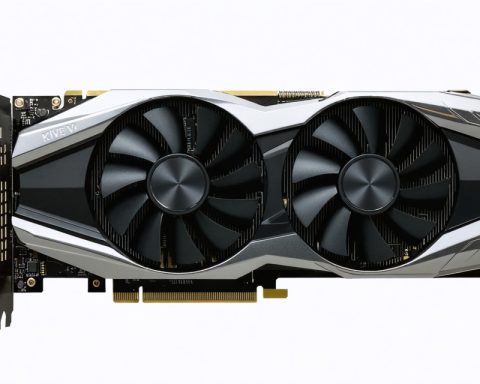Nvidia Corporation’s (NASDAQ: NVDA) stock saw significant volatility as shares dropped over 3% following an announcement from China’s regulatory body regarding an investigation into potential antitrust violations. This probe by the State Administration for Market Regulation (SAMR) is centered on Nvidia’s 2020 acquisition of Mellanox Technologies, a deal that required Chinese approval.
In securing the $7 billion acquisition, Nvidia had to agree to inform competitors of any new Mellanox products within a specific timeframe post-acquisition. The inquiry seeks to determine Nvidia’s adherence to this condition. Delving further into this matter, South China Morning Post detailed that Nvidia could encounter fines up to $1 billion, as China’s antitrust rules impose penalties between 1% and 10% of a company’s annual sales. However, it’s not yet clear whether these penalties would apply to Nvidia’s global or China-specific revenues.
With China, including Hong Kong, representing Nvidia’s third-largest market by revenue — contributing $10.3 billion in the past financial year — this investigation holds significant implications for the company. The potential financial penalties, combined with market speculation of a retaliatory move against U.S. restrictions, have further strained investor confidence.
Despite positive sales data from key supplier TSMC reflecting strong demand for its products, Nvidia’s shares are experiencing pressure, partly due to typical year-end profit dynamics. Analysts predict this trend is temporary, with stock likely to bounce back in the first quarter. However, investors are urged to weigh Nvidia’s prospects against other promising AI stocks expected to offer higher returns.
Nvidia’s China Probe: Implications, Market Trends, and Future Outlook
Overview and Market Implications
Nvidia Corporation (NASDAQ: NVDA) recently faced significant stock market volatility following news of an investigation by China’s State Administration for Market Regulation (SAMR). This inquiry is focused on Nvidia’s 2020 acquisition of Mellanox Technologies, scrutinizing whether Nvidia adhered to the agreement to notify competitors of any new Mellanox products within a specific timeframe post-acquisition. The investigation poses potentially hefty financial penalties that could reach up to $1 billion, depending on whether they apply to global or China-specific revenues. This development is crucial given that China, including Hong Kong, is Nvidia’s third-largest market, contributing $10.3 billion in the last financial year.
Trends and Investor Insights
Despite the immediate negative impact on Nvidia’s stock, market analysts see this as a temporary downturn. A key supplier, Taiwan Semiconductor Manufacturing Company (TSMC), showed robust sales data indicating strong demand for Nvidia’s products. Historically, stock performance dips at the end of the fiscal year due to profit-taking or market adjustments. Analysts anticipate a rebound in Nvidia’s stock during the first quarter of the next fiscal year, driven by ongoing demand for AI-driven technologies and semiconductor products.
Pros and Cons of Investing in Nvidia Now
Investors are deliberating whether to hold onto Nvidia shares amid these volatile times or explore alternative investments in the AI sector. Here are some considerations:
Pros:
– Nvidia remains at the forefront of AI technology and graphics processing.
– Strong demand for GPUs, fueled by sectors like gaming and autonomous vehicles, provides positive long-term prospects.
– Partnerships with companies like TSMC indicate a robust supply chain.
Cons:
– Potential fines and regulatory pressures in key markets like China could impact profitability.
– Short-term stock volatility may deter risk-averse investors.
– Ongoing trade tensions might affect cross-border partnerships and revenue streams.
Predictions and Future Innovations
Analysts predict that Nvidia will continue to innovate in AI and expand its product offerings, even as it navigates geopolitical and regulatory challenges. The company is expected to explore enhancements in its computing platforms amidst increasing competition and regulatory scrutiny.
Comparative Market Analysis
Comparatively, other AI and semiconductor companies are also drawing investor interest for potentially higher returns. Companies diversifying into AI-driven solutions or focusing on emerging markets may offer more attractive growth opportunities.
For further insights into Nvidia’s technological advancements and corporate strategies, visit their official website. As Nvidia continues to evolve in a rapidly changing global environment, its blend of strategic foresight and innovative prowess remains pivotal to maintaining a competitive edge.



















